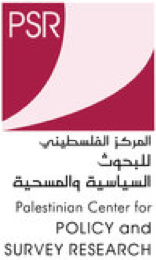Europe's External Action and the Dual Challenges of Limited Statehood and Contested Orders (EU-LISTCO)
EU-LISTCO is a cooperative research project under the Horizon 2020 program financed by the European Commission.
Coordinated by the Free University of Berlin, is has been approved in Summer 2017 for a duration of three years. The senior researcher for the project at CERI is Christian Lequesne
Project summary
Two risks characterize the European Union's (EU) regional and global security environments:
- areas of limited statehood (ALS) in the EU's East and South, in which central government authorities are too weak to enforce rules and/or do not control the monopoly over the means of violence;
- contested orders (CO), in which various actors challenge the rules according to which societies and political systems are and should be organized.
EU-LISTCO will investigate, first, under which conditions ALS/CO deteriorate into governance breakdown and violent conflict, turning risks into security threats for Europe. By combining risk scanning and foresight methodologies with comparative case studies, it aims at identifying the tipping points at which risks turn into threats, and how they might be better anticipated. It will also look at how global and diffuse threats affect tipping points as well as the sources of resilience in ALS/CO that can be leveraged from the outside.
Second, EU-LISTCO will investigate how the preparedness of the EU and its member states can be strengthened to anticipate, prevent, and respond to threats of governance breakdown and violent conflict and to foster resilience in ALS/CO. In particular, it will examine the strategies, capacities, and policy instruments of EU institutions and selected member states, with a focus on the provisions of the Lisbon Treaty and the implementation of the EU Global Strategy.
A new methodology for knowledge exchange between academia and foreign policy will assist EU-LISTCO to achieve its policy objectives. EU-LISTCO encompasses a unique consortium of universities and think tanks in close cooperation with the European External Action Service as well as the Ministries of Foreign Affairs of France, Germany, and Italy. This knowledge exchange will take place continuously allowing scholars to incorporate concrete policy challenges in their research and enabling policy practitioners to pursue research-based policies.
CERI's role
The project team at CERI is the co-leader of the Workpackage 5, Analysis of the Preparedness of the EU and its Member States, with CIDOB, Barcelona.
The objectives of this workpackage are threefold:
- conceptualise the preparedness of the EU and selected member states (France, Germany, and Italy) for dealing with security threats emanating from ALS/CO as well as from global and diffuse threats
- evaluate the willingness, institutional capacities, instruments and strategies of the EU and selected member states, including the EU Global Strategy (to anticipate, respond to, and prevent crises deriving from ALS/CO as well as from global and diffuse risks and threats; to foster resilience ; and to promote policy coherence when acting in ALS/CO
- analyze the extent to which order contestations inside the EU affect the external action capacity of the EU and selected member states to deal with ALS/CO.

Site web du projet : https://www.eu-listco.net/
Twitter : https://twitter.com/eulistco/
Facebook : https://www.facebook.com/eulistco
Policy Relevant Scholarship? The Value of Creating, Framing and Storytelling
While occasions of contact between academia and practice exist, they remain mainly ad hoc and superficial. Academics can contribute to policy-making by using their unique skill set but with an eye for the concepts, the framing and the story-telling.
Read More
Strengthening Resilience in the EU’s Neighbourhood
In order to help build resilience, the EU needs to know its neighbours, find the right partners in its neighbourhood, and provide the policy space for new resilience partnerships to develop.
Read More
![]()
![]()

![]()
![]()
![]()
![]()
![]()
![]()
![]()
![]()
![]()
![]()
![]()
![]()
![]()
![]()
![]()










